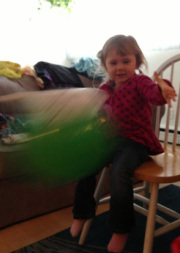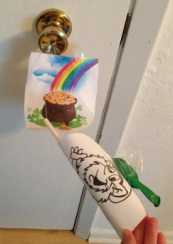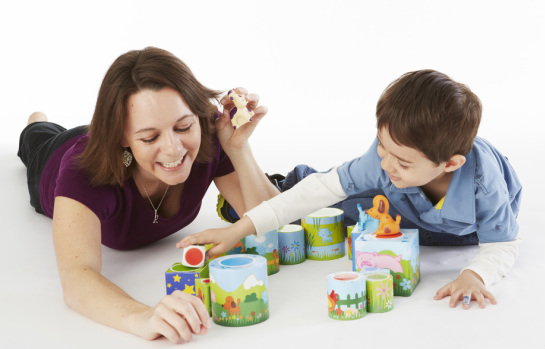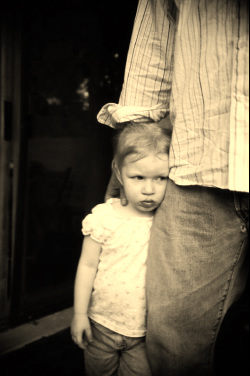Tools Needed:
String (long enough to go across the room - amount equal to leprechaun pictures)
Balloons (amount equal to number of leprechaun pictures)
Straws
Picture of Pot of Gold at end of rainbow (you can draw or search google images and print)
Pictures of Leprechauns - as many as you wish (you can draw them or find images from google images)
Set Up and Play:
With or without your child (depending upon how involved they want to be) tape the pot of gold up in the room. Tape the end pieces of string to the picture of the pot of gold (as many as leprechaun pictures you have). Thread the string through straws. Blow up a balloon (don't tie it off) and tape the leprechaun picture over the straw to the balloon (see picture 1). Let the balloon go and it will fly to the pot of gold (or it might not make it all the way and you have to keep doing it until it gets there! Do it with all your balloons.
This game is great to work on attention span, physical participation, playing others games. It will be enjoyed by kids throughout the spectrum. It can also be varied to work on many other goals. Here are a few ideas...
-You could work on eye contact while you blow up the balloon
-You could work on longer sentences while your child tells you where to send the balloon (maybe there are several pots of gold?)
-Feel free to add in more ideas in the comments below!
I played this game with one of my favorite friends with autism in the playroom and it was a hit, then I brought it back and my own girls loved it! This game is fun for everyone!!
Happy St. Patrick's Day!











 RSS Feed
RSS Feed
